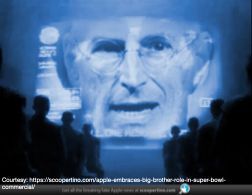With services and infrastructure tailored toward an “empty wallet” lifestyle, Apple, Google, and other digital locker suppliers are adding convenience and accessibility to services that exclude those without smartphones. As these services flourish with the ability to influence Retail, Travel (the following patent issued to Apple ‘System and Method for transportation check in’ in July), and more, what happens to those without smartphones when basic services are made inaccessible to those without the latest gadget?
When an empty-wallet lifestyle becomes widespread, what happens to the 70% of the population that doesn’t have them? Healthcare, social security, membership, and other basic forms of identification become disintermediated by this technology. Personalization and rewards also come at the price of tracking by corporations.
Using a method I call Constructive Disruption, we can break down the problem and examine some scenarios.
There is also another darker aspect to such technology. What happens when it fails or is subject to hacking/terrorist activities? Or if every wallet is an “open wallet,” what then? Your location, transactions, friends, and general activities are subject to inspection as they travel over a corporate network. Privacy, regardless of promised safeguards, is suspect. Millennials and Gen-Z have grown up on technology and learned when and how they want to share. It’s a cultural change for people and corporations that will take time to adopt widely. While not a trending topic in this year’s election, I propose that by 2016, it will be its platform.
I’ve lived through the outcomes of technology failing a population. Once upon a time, I was responsible for developing a college campus debit card system. Students loaded funds into an account linked to their student ID card. The adoption of the “Bear Bucks” debit card went viral. Within six months, few people were carrying cash on campus. Then one night the server crashed. It was a state-of-the-art IBM PC-based server but had no backup. Given the costs, we hadn’t thought to bring them a spare server.
The head of Student Services called in a panic. The bookstore and food services were nearly shut down, with no one carrying cash. I flew out, replaced the server, and life was good again.
Yet, all is not darkness. Easy access to one’s medical and financial records is better than where we are today. For example, the administrative cost of healthcare is so severe that the government has mandated improvements in accountable care. In France, citizens carry health cards implanted with chips to give primary care providers immediate access to their medical history. Costs are dramatically less than in the US.
Awareness building is the key. Digital providers such as Amazon, Apple, Facebook, and Google have the unique opportunity to drive public good over private gain.

